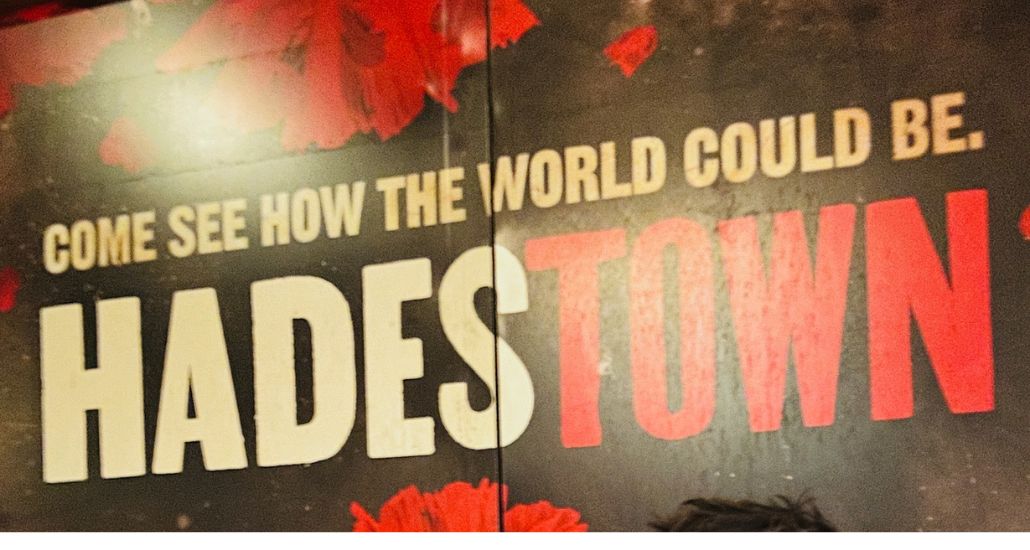I recently had the chance to see Hadestown, a Broadway re-telling of an ancient Greek myth. Spoiler alert: I’m going to tell you the ending, but it’s been out of the bag for thousands of years, so I don’t feel too bad about it.
The story follows a young man named Orpheus, whose girlfriend, Eurydice, gets swept off to hell by Hades, god of the underworld. When Orpheus follows her, Hades makes them a deal: They can leave, but only if Orpheus walks just ahead of Eurydice and never looks back.
Hades knows that this is a particularly efficient form of torture, because Orpheus will torture himself by doubting that Eurydice is following him. No one needs to set the hell hounds on the young couple because, as the Fates sing in Hadestown:
The dog you really got to dread
Is the one that howls inside your head.
It’s him whose howling drives men mad
And a mind to its undoing.
After Eurydice faithfully trudges behind Orpheus all the way to the very gates of hell, the young man loses his nerve. He looks back—just a quick check to make sure Eurydice is there—and she’s trapped in the underworld forever.
This story is such a bummer, right? And so familiar.
The older I get, the more I realize how much suffering I’ve caused myself by falling into doubt when I could have chosen trust.
I see this in the people I coach, as well. We want to make absolutely sure we’ll have what we need, whether that’s money, love, health, success, or anything else. “How can I be sure I’ll get it?” we think. “How can I be certain I’ll never lose it?”
Our desperation to be sure we’ll get what we want can keep us from attaining our goals, and can cause endless misery.
We can’t ever be absolutely sure of anything except the reality of continuous change. When we fixate on our “need” for certainty, we become Orpheus, looking backward, losing what we treasure in the very effort to grasp it.
The alternative to this is learning to trust. Not hypnotizing ourselves with wild speculations about winning the lottery or marrying a movie star, but locating what feels like destiny in the marrow of our bones, doing what we can to make it happen, and then relaxing.
Intention, attention, no tension.
Here’s the one statement that I’ve found rings true for every person I’ve ever asked. It’s my way of homing in on my “sense of truth,” my integrity. The statement is: “I am meant to live in peace.” Say or think that to yourself a few times, breathing easy, and feel how deeply it resonates.
This feeling, the one you can trust, isn’t a manic euphoria; it’s calm, steady, and infinitely deep. See if you can find it in your body.
Got it? Good.
Now think of something you hope for. If you have lots of anxiety and doubt, start with something small, like hoping you’ll have a nice evening tonight. (Orpheus never got to practice, so he simply couldn’t take the pressure.)
Now imagine how you’d feel if you did absolutely know it would happen. Dead certain. Not a whisper of a doubt.
If this is an effort—if it feels like you’re straining to believe—choose a less fraught topic. But if you can find your way to trust, your whole body will relax.
Now go forward with your day, holding this warm hope or expectation in your heart. Maybe the thing won’t happen, and maybe it will. Whatever the outcome, you’ll get to enjoy the anticipation.
The way to enjoy life is to keep our hearts open, knowing that though hearts can break, they heal strong in the broken places. My experience is that when I trust a true desire, I get what I want, or I get something better. I might not think it’s better at the time, but this is always true in the long run.
If you’re walking out of a hellish place, or just walking through a dangerous and difficult world, know that your heart’s desires are meant to trigger trust. When the hellhound in your head starts to howl, be kind to it. “There there, doggy,” you might say to it. “Happiness is following us. Don’t you worry.”
This takes practice. You’ll lose your nerve, probably a bunch of times. You’ll compulsively check, grasp, nag, hang on. This makes a good result less likely, and your life a welter of anxiety.
But if you practice on small things, you’ll start to see it’s true: You get what you asked for, or something else—something that somehow turns out to be even better.
I hope you’ll try this out. I hope we’ll all imagine a beautiful future and play it out together. I really, really want that. But I won’t be checking. I’ll be doing my best to walk out of the underworld on the path of trust. It’s the trail that has all the best views.










